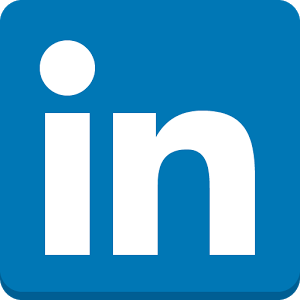I Left My Dead-End-Job And Now Make $360K/Year Reviewing Software And Gadgets
Hello! Who are you and what business did you start?
Hi there! I’m Deyan Georgiev and I’m one of the founders of Techjury.net. If you haven’t heard of it, this means I have more work to do.
In a nutshell, it’s an affiliate website where we review software, services, gadgets, and devices.
Our mission is to disrupt the review site industry by crafting unbiased reviews. We aim to share valuable information with our readers, instead of trying to sell the products.
Although this strategy led to a (very) slow start, we are now making $30,000/month in revenue. This was achieved by a very small team that today consists of 13 people. We help over 200,000 people a month find the best software and products for them, their families, and their business.

What's your backstory and how did you come up with the idea?
Three years ago I was stuck in a dead-end data-entry job. I was doing this for 10 years, so I was desperate for a change. However, I didn’t have a university degree and there weren’t any well-paid jobs in my hometown, so there was seemingly no way out.
So, since we were (always) short on money, I tried doing some online side gigs on the side.
That’s when I faced the first problem.
Back then I had two young boys - a two and a three-year-old, who were (and still are) loud as hell. Needless to say, getting any type of work done was a nightmare. And back then I had only one PC that was in the same room where they spent most of their time. Disconnecting and moving it wasn’t an option.
That was problem number two.
So, I decided I needed a laptop - an average possession for most people, but it was a luxury for me back then. And since my budget was (very) limited I searched for the best laptop under $200 on Google. You can imagine my surprise when most lists titled “Best Laptop Under $200” consisted of models that were way more expensive. Excuse me, what?!
Websites were cheating visitors to get a higher commission from each sale. This didn’t sit well with me.
This is when the idea for Techjury was born. At the time I thought I didn't have the resources and time to make it happen. I couldn’t let go of it, however.
Then, in December 2018, out of nowhere, a friend of mine called me and told me he knew someone who was considering starting an online business. We got in touch and he introduced me to his boss, who approved of our idea and funded it. Long story short, we were ready to launch Techjury.net.
Truth be told, luck played a huge part in where I am now. If it wasn’t for the exact timing I met the guys, Techjury would probably not have been created yet. And if it was, surely it wouldn’t have been at the stage where it is today.
Even if you are a solo player, you’ll always need people to back you up and support your vision. Otherwise, you’ll be blindly chasing something that could be wrong from the beginning.
Take us through the process of designing your service
We launched the site in February 2019. It wasn’t too pretty, but it was functional, which corresponds with the idea behind it - to help the readers, instead of fooling them that all that glitters is gold.
We didn’t have a ton of money to spend, so we started with a simple WordPress website and a mission. We have some friends who are experts in UX and UI who helped us with designing the site. If it wasn’t for them, we’d probably hire a company to design it.
That said, our initial costs were quite low. The legal side of it, creating the company, paperwork, and so on, took about a week and less than $500 in taxes and fees. Starting a business in Bulgaria isn’t that hard, honestly. The tricky part is keeping it alive.
We started working remotely at first, everyone at their home, which works for such a type of business, albeit it’s not the most effective at first. The benefits of this, though, are that we didn’t need to spend hours on meaningless meetings and discussions. We already had a vision and we started working on it to the best of our capabilities.
We managed to hire a handful of writers and an editor, so we could deliver quality content to our readers. This is, in fact, one of the key differences between us and other sites in the niche - we don’t outsource our work to third-party companies or order articles from Fiverr freelancers.
You are probably wondering why is that?
The only reason for this is that I value our content quality above all, and I need to work with people who I can rely on to get the job done in the best possible way. Additionally, you can’t expect a third-party writer to believe in your vision and support it. To top it all, in our fast-paced industry, the rules change often. You can’t expect an outside helper to stay up-to-date with the best practices in SEO writing.
You need to treat people the same way you want to be treated. It doesn’t matter if you are talking to the owner of a multimillion corporation or the underpaid freelance outreach person who wants a link on your site.
I have three freelancers on my team today, but they’ve been with me for years. The only difference is their employment status - they prefer to be freelance instead of full-time, and they do the same amount (or even more) of work as my full-time teammates.
Describe the process of launching the business.
It didn’t take that long. We needed two months to polish the idea, plan and write the first articles and then launch the site. We were so dedicated to making it work, that we didn’t quite realize we had a live website in February. We felt like we were in a dream.
As I mentioned above, it wasn’t anything special. A simple WordPress website that looked like this:

The image you see above was the result of a few months' work, and a handful of articles we hoped would blow up.
However, we made a few mistakes early on.
The good thing about mistakes is that you can learn from them and (hopefully) not repeat them in the future.
Even before we launched Techjury, we knew we’ll have to monetize it some way. We could use ads when we gain enough visitor base, use affiliate marketing, or apply both.
But.
None of us liked the idea of having ads on the site, simply because...well...they are annoying. And if the ads annoyed us, surely they’d annoy our visitors, who we care about most.
So the only viable option was to use affiliate marketing.
For those of you who don’t know what it is, it’s a marketing channel to monetize your content. If you recommend a service or a product and the visitor buys it, after being referred from your site, you get a commission for the sale.
This, however, led to a moral dilemma - should we recommend lousy devices and laggy software, just to earn some money?
Hell no.
We promised ourselves we’d review unbiasedly. Even if we were offered a lot of money, if the product sucked - we’d say so.
Needless to say, this wasn’t the best approach from a financial point of view.
We didn’t make any money (literally) for an entire year.
However, our end goal was to be a household name for software and devices reviews, so we had no other choice but to stick to our plan.
But there was one thing that slowed down the whole process.
We started with the wrong niche.
See, software and tech products offer vast topics to cover. You have everything - from grammar checkers to antivirus software. And back then, we made the wrong choice of starting with the latter, along with VPN services. Both were (and still are) extremely competitive topics, and it took us years to rank organically for those terms.
So, pro-tip - if you consider starting an affiliate blog, make sure you pick the right niche.
Today we cover tons of topics, including cybersecurity, business management, devices, and much more. But if we had chosen less competitive topics in the beginning, we’d be even bigger now.
The second important lesson we learned was to be prepared.
See, the initial website design had some flaws, which we discovered later on. As a result, we had to fix them while the website was live. This wasn’t great - it might have even resulted in a bad user experience. Since then we’ve had two redesigns and both times we spent months on QA before we launched them.
Since launch, what has worked to attract and retain customers?
Organic traffic.
This was the channel we focused on from the very beginning, and it’s the one that brings us 90% of our visitors. I was learning SEO as I went because all I knew back then was how to write. I learned how to do keyword research, article structuring, on-page SEO, technical SEO, and all the required skills needed to create a successful website later on.
I also invested in a high-quality outreach team that helped spread the word about our content.
However, what I wasn’t prepared for was the time needed for your SEO efforts to pay off. And Google’s algorithm updates made it even worse.
For some reason, I was expecting a straight-up traffic line, with more and more visitors coming to the site every day because we published new content regularly.
Well, I learned the hard way that it’s not how this works. In the earlier days, our traffic looked like this:

There were highs and lows and then lows again. I had a lot of breaking points while trying to improve my SEO. I read and listened to different guides, focused on different things, and experimented. Sometimes it worked, sometimes it didn’t.
The problem was that I got obsessed by following a variety of guidelines, using tons of tools, and monitoring keywords hourly. Not a good idea.
You can’t dedicate your entire time to only one task when you manage a business.
Once I realized that I went back to trying to improve the content and provide our visitors with practical information. This was the main idea of the business anyway.
This, however, worked way better than any other SEO strategy I’ve ever tried. Eventually, the search engines picked this up, along with the good user signals. Techjury started attracting more and more traffic organically.
How are you doing today and what does the future look like?
I believe the hard times are behind us now. During our first year, we were burning through cash badly (about $10k/month). The second one was also bad, although there was some improvement.
In June this year, we made our first couple of hundred bucks in profit. It’s not much, but I was getting sick and tired of being cash flow negative.
For the last 6 months, however, we’ve been getting decent profit, with an average of 20% month-over-month increase.
This wouldn’t be possible, without our awesome audience, which, as of today, consists of about 200,000 visitors a month.
And my team, of course. I work with 13 wonderful teammates, each an expert in their field. And even though we are just a handful of people, we are making an impact and disrupting the tech review industry.
Here’s how it all looks like, from the beginning until today:

Nowadays, we are still working on our mission to make the internet a more informative place. We even launched a news section, to keep our readers up-to-date about events and stories.
In the near future, we plan to build a new design from scratch that will be truer than who we are. We’ll also expand our content, which will help even more people find the right solution for their needs.
In the long run, I expect we’ll find even more experts that are willing to share their insights on a variety of topics with our curious readers. Then, who knows, we might create other Techjury-like sites for different niches.
Through starting the business, have you learned anything particularly helpful or advantageous?
I already mentioned some of the mistakes we made along the road. There are tons of others - missed opportunities and bad timing, but in the end - you simply can’t do everything right.
The good thing about mistakes is that you can learn from them and (hopefully) not repeat them in the future.
I consider my team one of my better choices. I handpicked every single person I work with, and I couldn’t be happier with them. During the years some people quit, but thankfully I was lucky enough to find amazing replacements. Thanks to them, we manage to find new trending topics and help our readers.
I’ve learned a lot of lessons during this three-year rollercoaster ride, but the main one is how to treat people. Even though we are a digital business, we invest our time in actual people - visitors, teammates, partners.
What I’ve learned is that you need to treat people the same way you want to be treated. It doesn’t matter if you are talking to the owner of a multimillion corporation or the underpaid freelance outreach person who wants a link on your site. In the end, it’s all about treating them right, and most of the time, they will return the favor. This applies to every aspect of life.
What platform/tools do you use for your business?
Oh boy, this would’ve been a very long list, so I’ll only name the ones I’m using daily.
- Project Management - Asana
- Time Tracking (I manage a remote team) - Hubstaff
- SEO - Ahrefs and Semrush
- SERP Monitoring
- Designs - Canva
- Communication - Slack, Zoom, Google Meet, and occasionally Skype.
What have been the most influential books, podcasts, or other resources?
The book that had the biggest impact on my life (including the business aspect of it) is King Rat, by James Clavell. If you haven’t read it yet, I strongly recommend it.
I’m not a huge podcast fan, however, I do follow some people in my industry on YouTube and I read their blogs.
Some of the notable names I’d like to mention are Brian Dean, Adam Enfroy, Matt Diggity, and Craig Campbell. They can teach you a lot about SEO, how to manage and build an affiliate blog, and much more.
Advice for other entrepreneurs who want to get started or are just starting out?
If you consider starting an affiliate website and relying on organic search, my only advice is this:
Try to create the best possible content out there and be honest with your readers.
The only other thing you need is patience. SEO takes time. Like, a lot of time.
I’ve seen our competitors make a lot of mistakes - biased rankings, sloppy-written reviews, unknown entities behind the text. You should give your honest opinion regarding a product, and put your name and face right there on the page.
If you can convince people to trust you, they’ll tell their friends, who’ll tell theirs, and so on. And word-of-mouth is the most efficient marketing strategy out there.
Are you looking to hire for certain positions right now?
We are always looking for talented writers who are experts in any tech niche. If you believe you are one, send an email to contact@techjury.net and we’ll be happy to talk to you.
Where can we go to learn more?
You are most welcome to visit our site and social media channels. You can find them below:

Download the report and join our email newsletter packed with business ideas and money-making opportunities, backed by real-life case studies.

Download the report and join our email newsletter packed with business ideas and money-making opportunities, backed by real-life case studies.

Download the report and join our email newsletter packed with business ideas and money-making opportunities, backed by real-life case studies.

Download the report and join our email newsletter packed with business ideas and money-making opportunities, backed by real-life case studies.

Download the report and join our email newsletter packed with business ideas and money-making opportunities, backed by real-life case studies.

Download the report and join our email newsletter packed with business ideas and money-making opportunities, backed by real-life case studies.

Download the report and join our email newsletter packed with business ideas and money-making opportunities, backed by real-life case studies.

Download the report and join our email newsletter packed with business ideas and money-making opportunities, backed by real-life case studies.

































